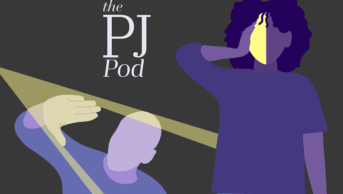Your recent article ‘Upskilling pharmacy teams to make migraine care routine practice‘ (The Pharmaceutical Journal, 14 August 2025) rightly highlights the enthusiasm within our profession and the pressing need for improved migraine services across the UK. Yet, unless upskilling is matched with sustainable funding, structured commissioning and wider system support, pharmacists will continue to face significant barriers.
For independent and contractor pharmacists, in particular, training and service development comes at a personal cost. There is no protected learning time, no guaranteed funding and no reimbursement. We have only the willingness to make sacrifices because we know our patients deserve better care. I have invested heavily in specialist training in migraine management and independent prescribing, and I have also trained the staff I work with, so they can confidently advise patients and supply appropriate medicines. While rewarding, this has placed real financial and personal strain. Expecting individual pharmacists to carry this burden risks widening inequalities, with only those who can afford to upskill able to do so.
Collaboration with GP practices is often presented as the key, but the reality is mixed. Some practices have been supportive of pharmacy-led initiatives, while others have been resistant, limiting opportunities for a truly integrated approach. A national framework that incentivises joint working, similar to the Quality and Outcomes Framework in diabetes and asthma, could create consistency. The NHS RightCare Headache and Migraine Toolkit, launched in 2020, already outlines pathways that could reduce avoidable admissions, yet these remain patchily embedded in commissioning. Without a national push, pharmacists risk being left to operate in silos.
Patient expectation also presents a daily challenge. It is never easy to tell someone that the medicine they are requesting is not clinically appropriate, especially when they insist it is what their doctor prescribed last time. These situations highlight the urgent need for consistent messaging across healthcare teams, as well as public education. The Migraine Trust’s ‘Migraine hurts‘ report, published in 2024, found that 63% of patients do not feel supported by the healthcare system, a finding echoed in focus groups I ran in 2023. Many patients remain unaware that today’s pharmacists can diagnose and prescribe, not just “dispense tablets”.
Until this gap in public understanding is addressed through national campaigns, pharmacists will continue to face unnecessary conflict in practice. Pharmacy is ready and willing to lead on migraine care; however, readiness alone will not build sustainable services. What is required now is national investment in training, formal commissioning of pharmacist-led migraine pathways and public-facing education. Only then can we move from isolated examples of good practice to a system-wide solution that truly benefits patients.
Gospel Eadweardfilia, clinical pharmacist independent prescriber, functional medicine practitioner and registered health coach


